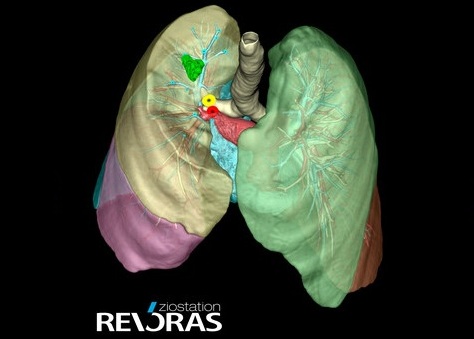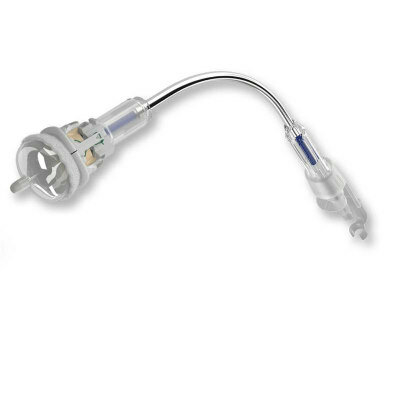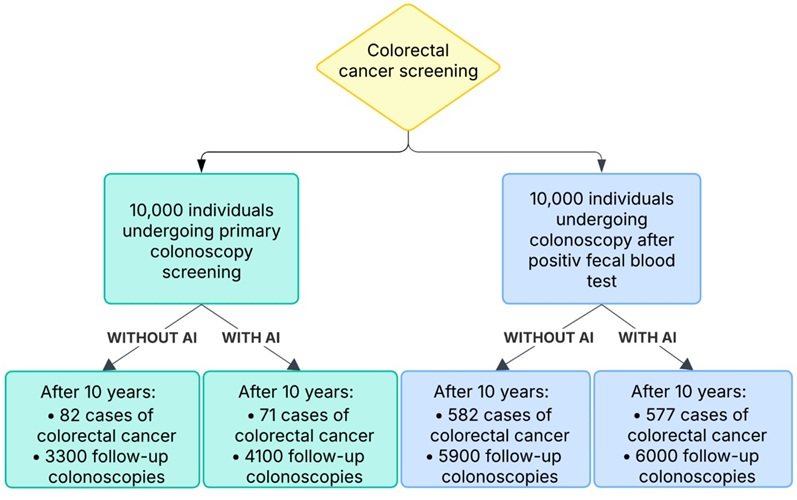AI-Powered Surgical Planning Tool Improves Pre-Op Planning
|
By HospiMedica International staff writers Posted on 26 Mar 2025 |

Physicians have traditionally relied on flat, 2D images to plan medical procedures. Now, a new application now leverages imaging technologies such as CT scans and MRIs to convert these static 2D images into dynamic 3D models in real-time, using AI and thousands of radiologic images. The goal is to assist physicians in making more informed clinical decisions, allowing them to preserve as much tissue as possible and improve tumor margins.
Olympus Corp. (Tokyo, Japan), in partnership with software firm, Ziosoft (Newark, CA, USA), has introduced its first AI-powered clinical decision tool. This tool integrates advanced imaging analytics and machine learning, giving surgeons greater control over their preoperative planning. The initial three applications launched under the Ziosoft Revoras platform aim to transform liver, lung, and kidney surgeries. The first application, designed for thoracic surgery, converts 2D CT/MRI images into detailed 3D models, helping with lung cancer treatment planning and reducing the need for invasive procedures. The second application targets liver surgeries, assisting general and hepatobiliary surgeons in visualizing liver anatomy, practicing procedures beforehand, and planning liver-sparing surgeries by mapping out blood vessels. The third application focuses on urologic surgery, supporting minimally invasive nephrectomies by accurately evaluating the size, shape, and location of tumors, cysts, or other abnormalities.
The introduction of 3D procedure modeling not only enhances surgical precision but also serves as a valuable educational tool for surgical fellows, guiding newer surgeons through unfamiliar tasks and workflows. This development is in line with Olympus' commitment to improving surgical outcomes through AI-powered clinical decision support. The launch of these applications is part of a broader series of innovations under the "Seeing the Invisible" initiative, which aims to make surgeries safer, more efficient, and consistently successful. Additionally, this surgical planning tool is being introduced alongside Olympus' Intelligent Endoscopy Ecosystem, which integrates AI technologies with hardware, software, services, and data to enhance clinical decision-making and optimize workflows in gastrointestinal care.
"Olympus has a proud legacy in medical technology, particularly as a pioneer in endoscopy. We are excited to partner with Ziosoft, which has its own long history of developing AI software to help physicians make more accurate diagnostic and treatment decisions during procedures," said Darryl Rock, Vice President, Business Unit Leader, Surgical Solutions. "This collaboration represents a significant step forward in Olympus's mission to bring innovative, AI-enabled solutions to the healthcare industry."
"Ziosoft is committed to improving patient outcomes, and we are pleased to collaborate with Olympus to equip clinicians with greater diagnostic capabilities through advanced visualization," said Rajeev Taitriya, Vice President, Business Development and Marketing, Ziosoft. "By combining our expertise in AI-driven imaging with Olympus' leadership in minimally invasive treatment solutions, we can help enhance surgical precision and streamline workflows, ultimately improving patient care. With the rise of lung cancer screening, more patients are undergoing complex segmentectomies, which Ziosoft's REVORAS platform can support by enabling rapid pre-operative planning, allowing thoracic surgeons to make critical surgical decisions in minutes, helping to optimize outcomes and advance the standard of care."
Latest Surgical Techniques News
- New Transcatheter Valve Found Safe and Effective for Treating Aortic Regurgitation
- Minimally Invasive Valve Repair Reduces Hospitalizations in Severe Tricuspid Regurgitation Patients
- Tiny Robotic Tools Powered by Magnetic Fields to Enable Minimally Invasive Brain Surgery
- Magnetic Tweezers Make Robotic Surgery Safer and More Precise
- Novel Sensing System Restores Missing Sense of Touch in Minimally Invasive Surgery
- Headset-Based AR Navigation System Improves EVD Placement
- Higher Electrode Density Improves Epilepsy Surgery by Pinpointing Where Seizures Begin
- Open-Source Tool Optimizes Placement of Visual Brain Implants
- Easy-To-Apply Gel Could Prevent Formation of Post-Surgical Abdominal Adhesions
- Groundbreaking Leadless Pacemaker to Prevent Invasive Surgeries for Children
- Spectroscopy Technique Improves Surgery for Pediatric Epilepsy Patients
- Bioengineered Arteries Show Promise for Cardiovascular Surgery
- Online Tool Guides Surgical Decisions for Gallbladder Cancer
- Innovative Technology Enables Rapid Life-Saving Surgical Leak Detection
- First-Of-Its-Kind Bioresorbable Implant to Help Children with Rare Respiratory Disease
- Screw-Shaped Magnetic Microrobots to Transform Treatment for Patients with Inoperable Blood Clots
Channels
Artificial Intelligence
view channel
Innovative Risk Score Predicts Heart Attack or Stroke in Kidney Transplant Candidates
Heart researchers have utilized an innovative risk assessment score to accurately predict whether patients being evaluated for kidney transplants are at risk for future major cardiac events, such as a... Read more
AI Algorithm Detects Early-Stage Metabolic-Associated Steatotic Liver Disease Using EHRs
Liver disease, which is treatable when detected early, often goes unnoticed until it reaches advanced stages. Metabolic-associated steatotic liver disease (MASLD), the most prevalent form of liver disease,... Read moreCritical Care
view channel
AI Eye Scans Could Help Identify Heart Disease and Stroke Risk
New research has explored the advantages of utilizing artificial intelligence (AI) retinal imaging for screening cardiovascular diseases in general practice (GP) clinics and highlighted areas where improvements... Read more
Digital Heart Twin Improves Diagnosis and Treatment of Cardiac Arrhythmias
Millions of individuals around the globe suffer from cardiac arrhythmias. Traditionally, electrocardiography (ECG) has been used to detect premature ventricular contractions (PVCs), one of the most common... Read more
First-Of-Its-Kind AI-Powered Probability Scoring System Assesses Heart Failure with Preserved Ejection Fraction
Heart failure with preserved ejection fraction (HFpEF) is one of the most difficult types of heart failure to diagnose due to the intricate interaction between various clinical and echocardiographic factors.... Read morePatient Care
view channel
Portable Biosensor Platform to Reduce Hospital-Acquired Infections
Approximately 4 million patients in the European Union acquire healthcare-associated infections (HAIs) or nosocomial infections each year, with around 37,000 deaths directly resulting from these infections,... Read moreFirst-Of-Its-Kind Portable Germicidal Light Technology Disinfects High-Touch Clinical Surfaces in Seconds
Reducing healthcare-acquired infections (HAIs) remains a pressing issue within global healthcare systems. In the United States alone, 1.7 million patients contract HAIs annually, leading to approximately... Read more
Surgical Capacity Optimization Solution Helps Hospitals Boost OR Utilization
An innovative solution has the capability to transform surgical capacity utilization by targeting the root cause of surgical block time inefficiencies. Fujitsu Limited’s (Tokyo, Japan) Surgical Capacity... Read more
Game-Changing Innovation in Surgical Instrument Sterilization Significantly Improves OR Throughput
A groundbreaking innovation enables hospitals to significantly improve instrument processing time and throughput in operating rooms (ORs) and sterile processing departments. Turbett Surgical, Inc.... Read moreHealth IT
view channel
Printable Molecule-Selective Nanoparticles Enable Mass Production of Wearable Biosensors
The future of medicine is likely to focus on the personalization of healthcare—understanding exactly what an individual requires and delivering the appropriate combination of nutrients, metabolites, and... Read more
Smartwatches Could Detect Congestive Heart Failure
Diagnosing congestive heart failure (CHF) typically requires expensive and time-consuming imaging techniques like echocardiography, also known as cardiac ultrasound. Previously, detecting CHF by analyzing... Read morePoint of Care
view channel
Handheld, Sound-Based Diagnostic System Delivers Bedside Blood Test Results in An Hour
Patients who go to a doctor for a blood test often have to contend with a needle and syringe, followed by a long wait—sometimes hours or even days—for lab results. Scientists have been working hard to... Read more
Smartphone-Enabled, Paper-Based Quantitative Diagnostic Platform Transforms POC Testing
Point-of-care diagnostics are crucial for public health, offering rapid, on-site testing that enables prompt diagnosis and treatment. This is especially valuable in remote or underserved regions where... Read moreBusiness
view channel
Expanded Collaboration to Transform OR Technology Through AI and Automation
The expansion of an existing collaboration between three leading companies aims to develop artificial intelligence (AI)-driven solutions for smart operating rooms with sophisticated monitoring and automation.... Read more
















